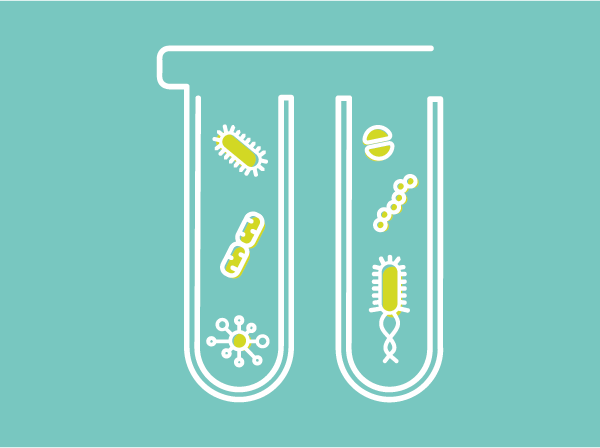OpenBiome Presents at ACG and IDWeek Conferences
Press Release
Share
Focus on FMT and the Universal Stool Bank Model in the Gastroenterology and Infectious Disease Communities
MEDFORD, Mass — OpenBiome’s research team recently presented multiple oral plenaries and posters on research into fecal microbiota transplantation (FMT) at both Infectious Disease Week 2015 and the American College of Gastroenterology 2015 Annual Scientific Meeting. OpenBiome’s abstracts were selected from hundreds of submissions, and covered topics that included the efficacy and cost-effectiveness of microbiota treatments for recurrent Clostridium difficile, and OpenBiome’s patented capsule delivery method.
OpenBiome, a nonprofit stool bank dedicated to expanding safe access to fecal microbiota transplants (FMT), provides treatments for patients with recurrent Clostridium difficile (rCDI), as well as other diseases investigated through clinical trials. OpenBiome aims to significantly reduce the practical barriers for clinicians providing FMTs, while supporting research scientists and physicians using FMTs or investigating the role of the microbiome in human health.
Reflecting a new emphasis on the importance of FMT within the field of gastroenterology, ACG hosted a key session evaluating studies and outcomes of the procedure. Colleen Kelly, MD, FACG, a member of OpenBiome’s Clinical Advisory Board, led the discussion with the results of her randomized, placebo-controlled, double-blind study which demonstrated that “FMT administered via colonoscopy was significantly more effective than placebo.”[i]
Also at ACG, Zain Kassam, MD, MPH, Chief Medical Officer at OpenBiome, was selected to give an oral plenary on the cost-effectiveness of providing FMT through OpenBiome’s universal donor model, demonstrating an incremental direct cost savings of up to $3,661 compared to vancomycin (the standard antibiotic treatment for rCDI).[ii] Additionally, OpenBiome’s poster entitled “Microbial Emulsion Matrices: A Novel Method to Produce Stable, Orally Available Capsules for Fecal Microbiota Transplantation to Treat Clostridium difficile,” covered the technology that OpenBiome developed, enabling the first scalable capsules.[iii] OpenBiome’s second poster, “Novel Safety Features in [FMT] for [rCDI]: Quality Assurance and Adverse Events Workflow,” showcased OpenBiome’s next-generation safety program.
At ID Week, OpenBiome’s poster presentation on donor selection was also included in Posters in the Park, a program designed to highlight promising work to thought leaders in the infectious diseases space. Entitled “Prospective Assessment of Donor Eligibility for Fecal Mirobiota Transplantation at a Public Stool Bank: Results From the Evaluation of 1,387 Candidate Donors,” this poster covered the rigorous screening criteria OpenBiome utilizes for selecting stool donors, and shared the most common issues for which prospective donors are excluded.
The ACG conference was held in Honolulu, Hawaii, from October 16th-21st, and ID Week was held from October 7th-11th in San Diego, CA. More information about OpenBiome, including its mission, patient stories, and Quality & Safety Assurance program, is available at openbiome.org.
Contact: media@openbiome.org
Twitter: @openbiome
Facebook: www.facebook.com/openbiome
[i] https://www.eventscribe.com/2015/ACGdemo/QRcode.asp?Pres=115633
[ii] http://acgblog.org/2015/10/08/oral-38-the-cost-effectiveness-of-competing-strategies-for-managing-multiply-recurrent-clostridium-difficile-infection-examining-the-impact-of-universal-stool-banks-and-encapsulated-fecal-microbiota/
[iii] http://acgblog.org/2015/10/08/poster-107-microbial-emulsion-matrices-a-novel-method-to-produce-stable-orally-available-capsules-for-fecal-microbiota-transplantation-to-treat-clostridium-difficile/

